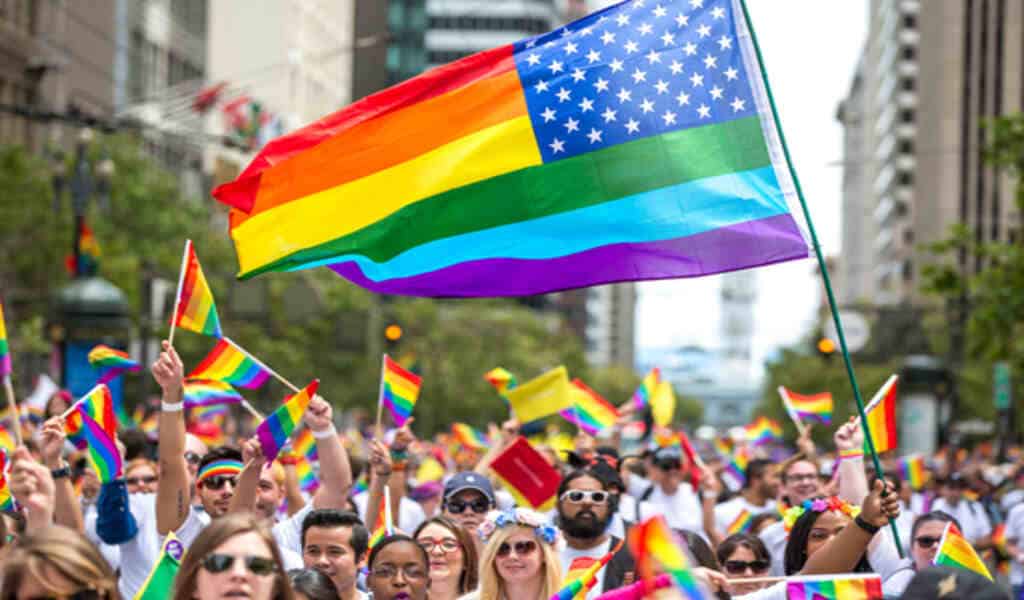Learning
How to Create Safer Spaces for LGBTQ Individuals

Whether you are an ally or LGBTQ yourself, you know that safe spaces for this community matter more than ever.
The transgender community has faced discrimination at alarming rates. The community as a whole is worried about their rights and future.
These difficulties add up over time, leading to chronic stress, alcohol use disorder, and other health problems.
Creating a safe space means making sure these community members are seen, understood, and completely free to be themselves.
However, every member of the LGBTQ community has different needs, so how can you make sure that you provide a safe space overall?
Below are three things you can do to create safer, freer spaces for LGBTQ people, either on a personal or large-scale level.
1. Center LGBTQ Voices
For allies, it’s tough to find the balance between speaking up for LGBTQ people and speaking over them.
You want to make sure the community knows that they have your support, but at the same time, you want to make sure that their voices, not yours, are the voices at the center.
If you’re LGBTQ yourself, you may have stumbled across a similar challenge, depending on which parts of the community you identify with.
For example, a cisgender lesbian won’t have the same experience as a transgender bisexual.
In any case, it can be difficult to find the happy medium between staying silent and taking the spotlight, so how can you make sure that you center the right voices? Try starting with these tips:
- Listen to members of the community. Talk to queer friends, follow LGBTQ people on social media, and read books by LGBTQ people. You’ll learn more about how to be a good ally from members of the community than you will from other allies.
- Yield your time in the spotlight. If asked to speak publicly as an ally, ask the organizers if any members of the community have been asked to speak first.
- Amplify LGBTQ voices online. Show your support by retweeting, sharing, and posting material from LGBTQ people.
- Understand that you’ll make mistakes. Nobody can be a perfect ally. If somebody does correct you, simply apologize and make a mental note of how to avoid repeating the mistake.
2. Look for Missing Resources or Support Existing Ones
LGBTQ people have many resources for safety and self-discovery, but there are still major resource gaps.
For example, many members of the LGBTQ community have been frustrated by a lack of quiet and sober spaces.
Because this community has higher rates of substance abuse than the general population, bars and clubs aren’t always safe for many LGBTQ people.
Furthermore, for underage or introverted LGBTQ people, these environments are not always accessible.
Some sober spaces, such as coffee shops and bookstores, have emerged to meet this need, but economic factors, including the COVID-19 pandemic, have forced several of these spaces to shut down.
What does this mean for LGBTQ people and their allies who want to create safe spaces? First, look for the needs that are not being met.
The lack of non-nightlife spaces is just one example. Second, do some research to see if anyone is already attempting to meet these needs. If you can find any existing efforts, support them.
If you can’t find people or organizations that are already working on these issues, then you may have found an area where you can make a difference yourself.
Just remember that if you are an ally instead of an LGBTQ community member, you should work directly with members of the community to make sure that you are meeting needs effectively.
3. Practice Empathy and Match Energy
“How should I react when somebody comes out to me?” is a common question among allies. What are the best ways to show support?
For allies, it’s important to remember that not every LGBTQ person is the same, and each person will have different preferences.
While some would prefer a “no big deal” response, others would find it hurtful. How can allies determine the best approach?
If someone is coming out to you or discussing LGBTQ issues with you, pay attention to how that person is acting, and then match that energy to the best of your ability.
If somebody casually mentions being gay, you can casually acknowledge what they’ve said.
If they seem nervous, meet their energy with calm reassurance. For someone who seems excited to tell you about this part of their life, be excited and celebrate with them.
Creating safe spaces isn’t always easy, whether you’re a straight cis ally or a queer person who wants to support other community members.
Just like with many things, though, it gets easier with practice. Over time, your individual efforts can help create a more accepting world.
Related CTN News:
The Best Homework Help from QuizBroz
How Send Money from India to US Digitally?
Easy Steps To Keeping Work And Personal Life Separate






























